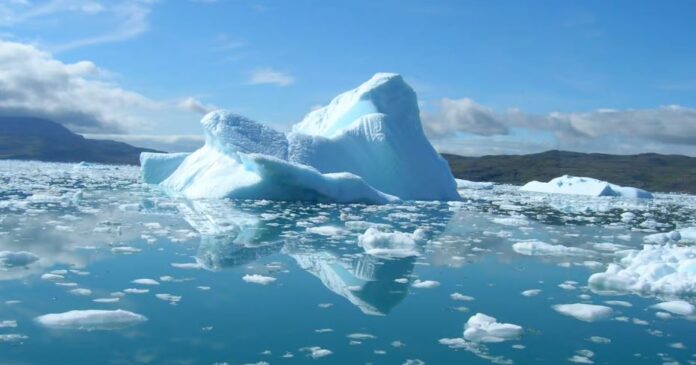The rate at which the world’s oceans are warming has almost doubled since 2005 due to human-driven climate change, according to a new report from the European Union’s Copernicus Marine Service. The report highlights the growing impact of global warming on oceans, which cover 70% of the Earth’s surface and play a crucial role in regulating the climate.
Ocean warming has been steadily increasing since the 1960s, but the pace has sharply accelerated in recent years. The report shows that between 2005 and 2023, the rate of ocean heating nearly doubled, rising from 0.58 watts per square meter to 1.05 watts per square meter. This increase reflects the larger trend of global temperature rises caused by greenhouse gas emissions.

“Ocean warming is a sentinel for global warming,” said Karina von Schuckmann, an oceanographer at Copernicus, underscoring the vital role oceans play in Earth’s climate system.
The report echoes findings from the UN’s Intergovernmental Panel on Climate Change (IPCC), which states that oceans have absorbed 90% of the excess heat trapped by greenhouse gases since 1970. Warmer oceans are contributing to more extreme weather events, including storms, hurricanes, and shifts in rainfall patterns.
Copernicus also noted a rise in marine heatwaves, with over 20% of the world’s oceans experiencing at least one severe or extreme heatwave in 2023. These heatwaves have severe consequences for marine ecosystems, driving species migration, mass die-offs, and disrupting ocean nutrient cycles. The report also warned of record-breaking ocean temperatures, unprecedented sea ice loss, and rising heat storage in the deep ocean.
The increasing duration of marine heatwaves is also concerning, with the average maximum length of such events doubling from 20 to 40 days since 2008. Some regions, such as the north-east Barents Sea in the Arctic, appear to have entered a state of “permanent marine heatwave,” according to von Schuckmann.
In 2023, polar regions experienced the lowest levels of sea ice ever recorded. Meanwhile, the coastal waters of the Balearic Islands off Spain hit a record temperature of 29.2°C in August 2022, the highest in 40 years. Heatwaves in the Mediterranean Sea have also reached depths of 1,500 meters, further demonstrating the extent of warming.
The report also highlighted a significant rise in ocean acidity, which has increased by 30% since 1985. This poses a serious threat to marine life, particularly species that rely on calcium carbonate, such as corals and shellfish, to build their skeletons and shells. The Potsdam Institute for Climate Impact Research (PIK) recently warned that the ocean’s acidity could soon cross a critical “planetary limit,” putting marine ecosystems at greater risk.
As oceans continue to warm and acidify, the effects on marine biodiversity, weather patterns, and global climate are expected to intensify, calling for urgent action to mitigate the impact of climate change.
Key Points:
- Accelerated Ocean Warming: The rate of ocean warming has nearly doubled since 2005, increasing from 0.58 watts per square meter to 1.05 watts per square meter due to human-induced climate change.
- Long-Term Trend: Ocean warming has been continuously increasing since the 1960s, with significant acceleration observed in recent years.
- Impact on Global Climate: Warmer oceans are fueling extreme weather events, including storms and hurricanes, by altering global weather patterns.
- Marine Heatwaves: In 2023, over 20% of the world’s oceans experienced severe to extreme marine heatwaves, affecting marine life and ecosystems.
- Record Temperatures: The report noted record-breaking ocean temperatures and unprecedented sea ice loss, with the lowest sea ice levels recorded in polar regions.
- Increased Ocean Acidity: Ocean acidity has risen by 30% since 1985, threatening marine organisms that rely on calcium carbonate for their shells and skeletons.
- Longer Heatwave Duration: The average maximum duration of marine heatwaves has doubled since 2008, now lasting up to 40 days.
- Critical Thresholds: Scientists warn that the acidity of seawater is approaching critical thresholds, which could have catastrophic effects on marine biodiversity and ecosystems.



